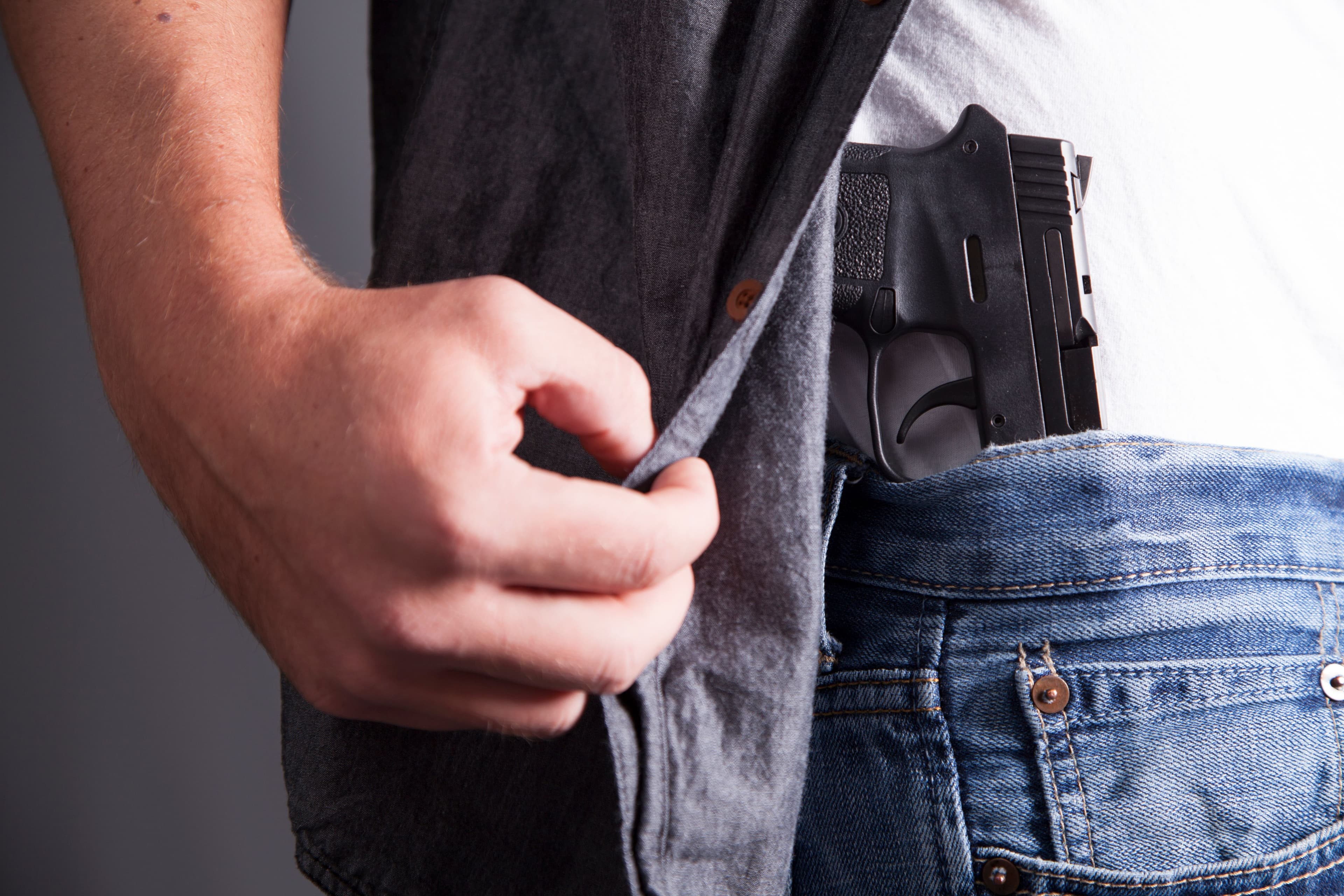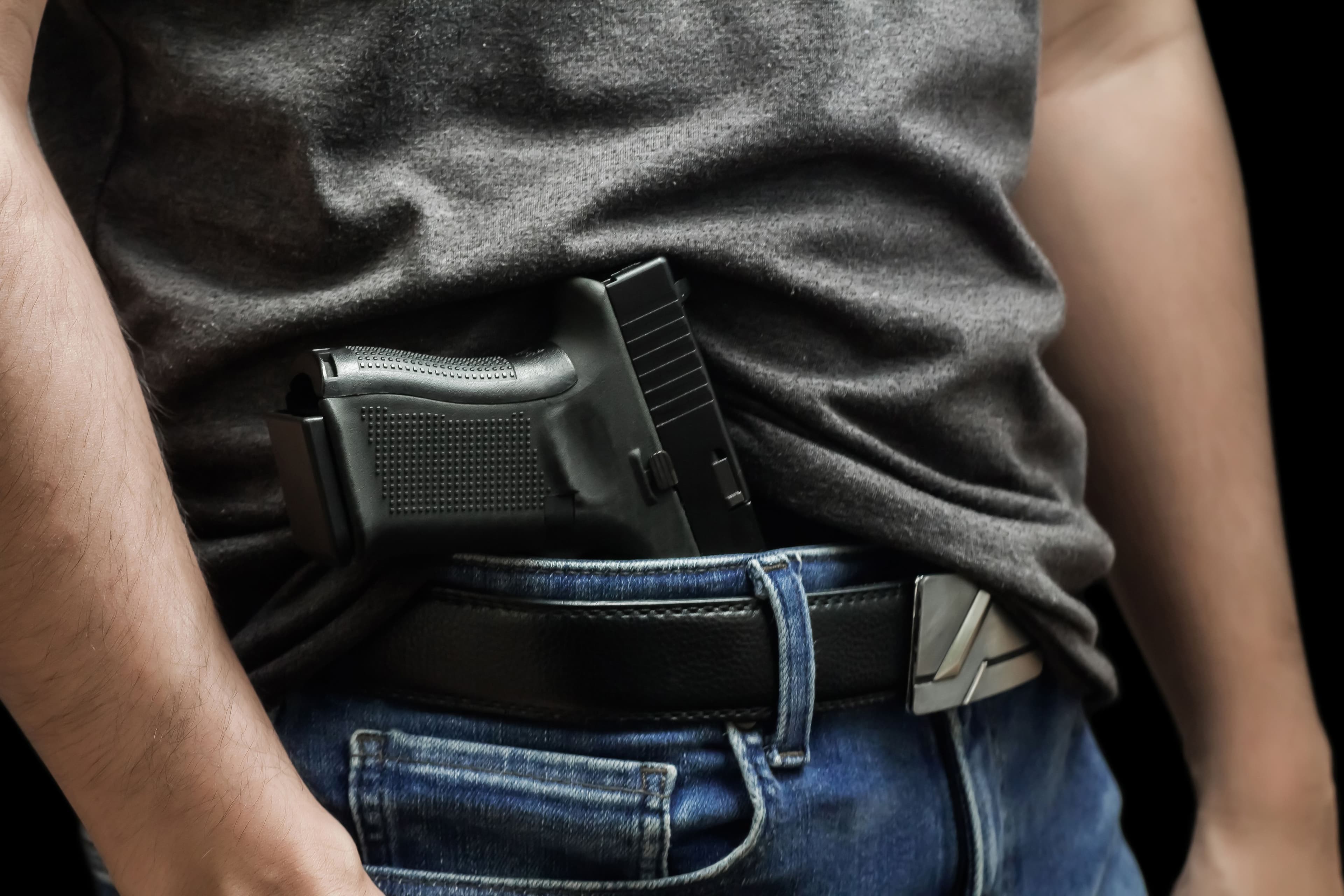
Concealed Carry Revealed
Learn Illinois concealed carry rules, license requirements, training details, and exceptions for out-of-state residents.
Learn Illinois concealed carry rules, license requirements, training details, and exceptions for out-of-state residents.
Concealed carry has been in the news a lot lately. First, from the court decision requiring the State of Illinois to implement a law, then the drama involved in passing it, and finally, the suspense when Governor Quinn attempted to veto it. But, in the end, the law survived, and Illinois now joins every other state in allowing its citizens to carry a concealed weapon.
But what does this mean? Can anyone go out right now with a hidden gun? Not quite. Here is a quick rundown of the law.
Illinois citizens cannot lawfully carry concealed weapons without a valid Illinois Concealed Carry License, except current peace officers and retired police officers eligible under the Illinois Retired Officer Concealed Carry (IROCC) Program or the Firearm Concealed Carry Act (430 ILCS 66). Carrying a firearm without a license issued by the Illinois State Police (ISP) may result in arrest. All Illinois residents seeking a Concealed Carry License must first have a valid Firearm Owner’s Identification (FOID) card.
The ISP intends to make applications available to the public by January 5, 2014. Upon receiving a qualified application, the ISP must issue or deny a license within 90 days, provided the applicant submits electronic fingerprints. If fingerprints are not submitted electronically, the ISP has an additional 30 days to complete a manual background check. Law enforcement agencies will have 30 days to file objections once an application is received.
To qualify, the applicant must:
- Be at least 21 years old
- Hold a valid FOID card (if an Illinois resident)
- Have not been convicted or found guilty in Illinois or any other state of:
– A misdemeanor involving the use or threat of physical force or violence within the last 5 years
– Two or more DUI-related offenses within the last 5 years - Not be the subject of a pending arrest warrant, prosecution, or proceeding that could lead to disqualification
- Not have been in residential or court-ordered treatment for alcoholism, detoxification, or drug treatment within the last 5 years
- Submit a completed Concealed Carry License application
- Successfully complete 16 hours of firearms training, including classroom and range instruction

On September 7, 2013, the ISP began approving certified firearms instructors and training courses. A registry of approved instructors and courses will be available on the ISP website. The required 16-hour training course includes range qualification and covers:
- Firearm safety
- Basic principles of marksmanship
- Care, cleaning, loading, and unloading of a concealable firearm
- All applicable state and federal laws relating to firearm ownership, storage, carrying, and transportation
- Lawful interaction with law enforcement while carrying a concealed firearm
Applicants must also pass a live fire exercise with a concealable firearm consisting of at least 30 rounds:
- 10 rounds from 5 yards
- 10 rounds from 7 yards
- 10 rounds from 10 yards
All fired at an ISP-approved B-27 silhouette target.
Out-of-State Residents
Non-residents who wish to carry a concealed firearm in Illinois must obtain an Illinois Concealed Carry License but are exempt from the FOID card requirement. To qualify, their state’s concealed carry laws must be substantially similar to those of Illinois. The ISP will determine what qualifies as “substantially similar.”
Non-residents are granted a limited exception to carry a concealed firearm in a vehicle if they are eligible under their own state’s laws and not prohibited under federal law. If the non-resident leaves the vehicle unattended, the firearm must be stored in a locked vehicle or locked container within the vehicle, as required by Section 65(b) of the Firearm Concealed Carry Act.
Definitions
- “Concealed firearm” means a loaded or unloaded handgun carried on or about a person, concealed from public view, or within a vehicle.
- “Handgun” means any device designed to expel a projectile by explosion, gas expansion, or gas escape, designed to be held and fired with one hand.
Exclusions
A handgun does not include:
- A stun gun or taser
- A machine gun (as defined in the Criminal Code of 2012)
- A short-barreled rifle or shotgun (as defined in the Criminal Code of 2012)
- Any pneumatic gun, spring gun, paintball gun, or BB gun expelling a projectile not exceeding .18 inch in diameter, with a maximum muzzle velocity of less than 700 feet per second, or paintball guns using washable marking colors
The post Concealed Carry Revealed appeared first on Harter & Schottland.
